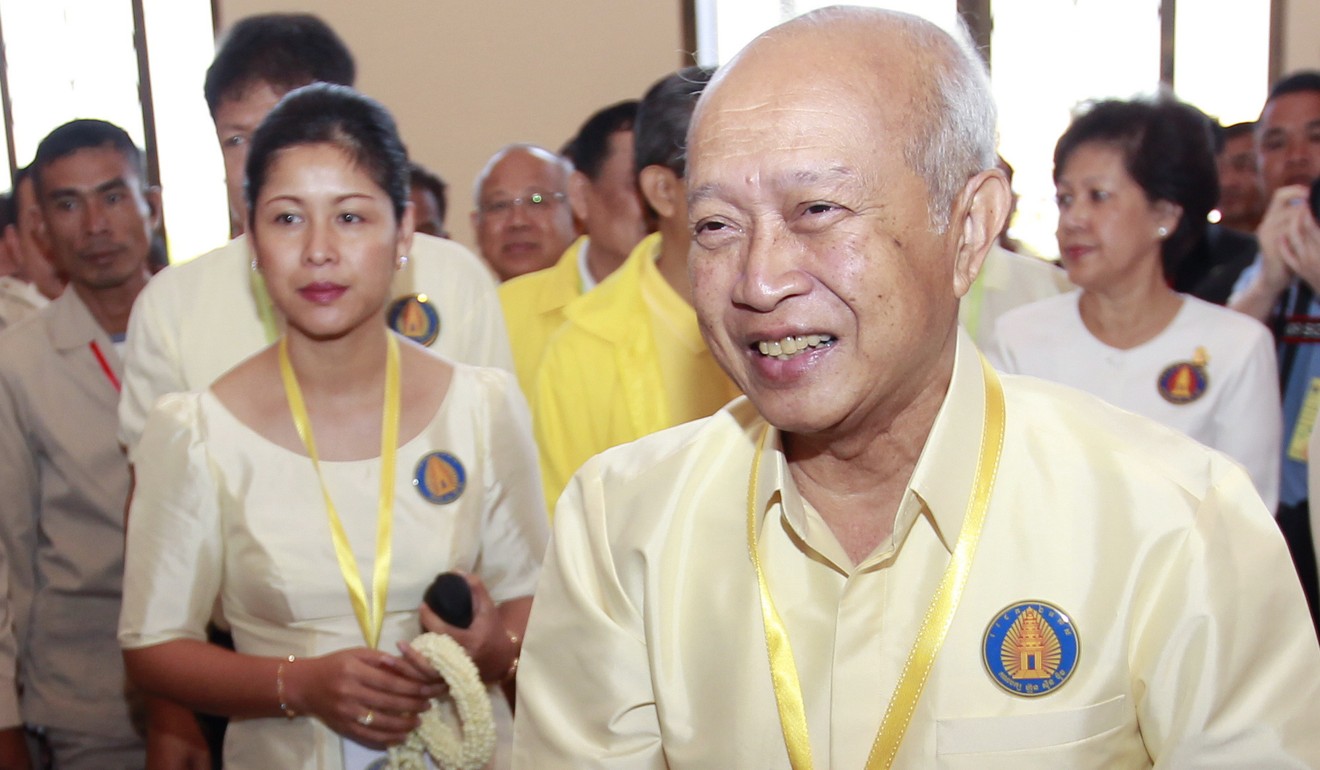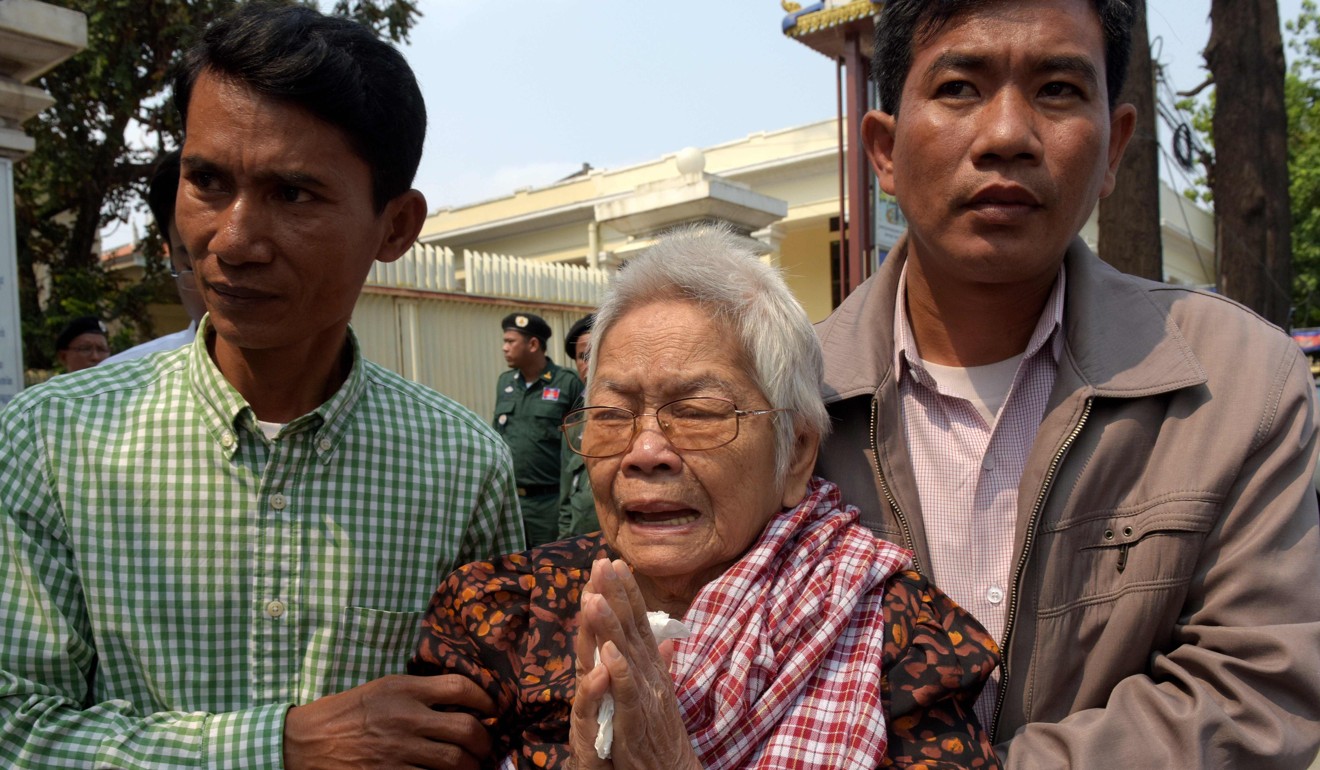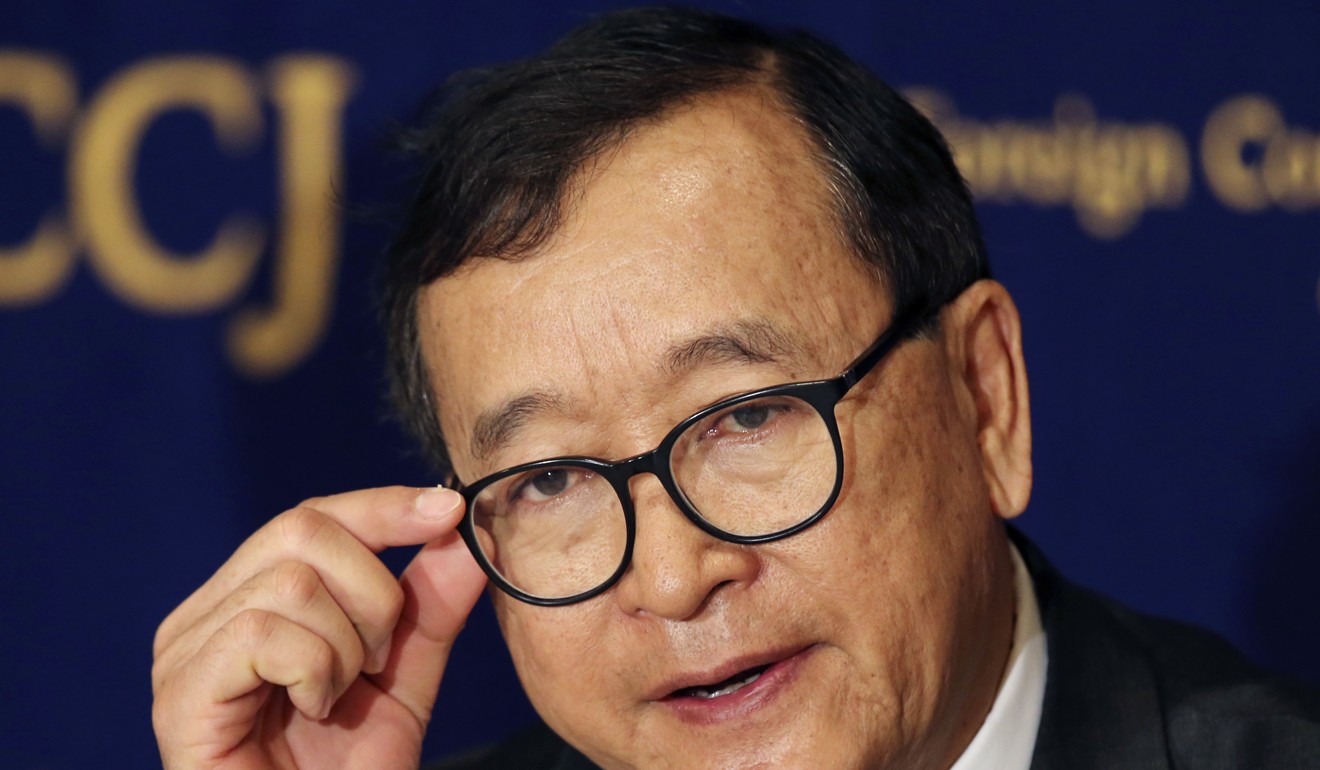
Cambodian election: what chance does the opposition have?
Cambodia’s election is widely seen as illegitimate due to the absence of the country’s biggest opposition party, but there are still 19 parties standing up to Hun Sen – even if they are small, with even slimmer hopes
“It will be difficult to win this month,” lamented Sarath, a member of the Grassroots Democratic Party, one of Cambodia’s 19 minor political parties that will compete in a general election on Sunday against Hun Sen’s long-ruling Cambodian People’s Party. “But, maybe in 2023, we have a chance,” he added, walking by a motorcade during a party rally in Phnom Penh this month.
His scepticism is well justified. The CPP, which has been in power since 1979, is widely expected to secure yet another electoral victory this weekend.
Despite the participation of the other political parties, the United Nations and several foreign governments have already branded the election “illegitimate” because the country’s main opposition, the Cambodia National Rescue Party (CNRP), will not be taking part.

A Mahathir-like figure, a car crash and Cambodia's election
CNRP leaders, many of whom are now in exile, have called on voters to boycott the election as part of a so-called Clean Finger Campaign – a reference to the ink used to mark a voter’s finger on ballots. But the smaller parties need people to vote on the day, and the CNRP’s strategy may only lead to the CPP winning all seats in the National Assembly.
Prime Minister Hun Sen’s ruling party proved its ability to mobilise its supporter base earlier this year, securing all but four seats in Cambodia’s upper house after Senate elections.
“Voters must come out and cast their ballots for the [Khmer Will Party], so that the KWP will be able to solve the political deadlock,” said Kong Monika, president of the KWP. He pledged to release Kem Sokha and allow former CNRP politicians back into the country if his party wins on Sunday – a promise he is more than likely not going to have to fulfil.

The CNRP is hoping that pressure from the international community after the election, either through sanctions or trade reductions, will prompt Hun Sen to reinstate the party and release Kem Sokha.
Sophal also said there was a risk that political figures from the smaller parties, if they attain some notoriety from this weekend’s election, may face the same fate as Kem Sokha.
Welcome to Asia's newest one party state
“What is to prevent the CPP from doing the same thing to [minor parties] – as was done to the CNRP – in 2023?” he cautioned.
For CNRP politicians and their supporters, the party is the nation’s true opposition. Without it, there is no other viable challenger to the CPP. For those who do not follow the CNRP but still oppose the government, the CNRP is simply another opposition whose days are probably finished.
“It is time for the young generation to get involved actively in politics in order to bring about a real democracy in Cambodia,” Monika said. “The CPP has been injecting its new blood in its leadership. The opposition must do the same.”
Although the election being an almost predetermined result, Sunday’s vote is important because it carries the fate of oppositional politics in Cambodia. Most analysts concede that the ill-fated CNRP will never be allowed to return as a legitimate political party in Cambodia, at least as long as the CPP remains in power. Hun Sen has said as much in several speeches this month. And without a smaller party winning a healthy number of seats in parliament, Cambodian politics won’t have an alternative to the CPP.
The exact make-up of Cambodia’s next parliament is anyone’s guess.
Last week, CPP spokesman Sok Eysan estimated the party would secure at least 51 per cent of the vote, or 63 seats – the majority in the 125-seat National Assembly. Officials from the GDP, meanwhile, said they hope to win 42 seats, according to local media.
Smaller opposition parties have not fared well in recent elections. In 2013, the CPP won 68 of the 123 seats in parliament (55 per cent) while the CNRP claimed the remaining 55. Funcinpec, a royalist party, received just 3.6 per cent of the last vote and the League for Democracy Party (LDP) received just over 1 per cent. Neither won any parliamentary seats.
But now, without the CNRP in play, all 19 smaller parties are vying to become the country’s new alternative choice, and hope to capture some of the dissolved opposition’s support base – perhaps even some disaffected CPP voters.

“The dissolution of the CNRP created a political vacuum for other opposition parties,” said Paul Chambers, a lecturer at the College of Asean Community Studies at Naresuan University in Thailand.
“Remember that the CNRP quickly came together as a political party in a very brief period before almost winning the 2013 election. Another party might be able to do the same thing,” he added, referring to the merger of the Sam Rainsy Party (SRP) and Human Rights Party (HRP) in 2012, which formed the CNRP.
But there is also some precedent for small, relatively new Cambodian political parties to win seats at their first election. The SRP won 15 seats at its first election in 1998, claiming the crown of main opposition from the Funcinpec party, which shared power with the CPP from 1993 to 1997 before being ousted in a bloody coup. The HRP, meanwhile, won three seats in the parliament in its first election in 2008.
While it is unlikely the smaller political parties will this year come close to the parliamentary stature of their opposition predecessors, 2018 is still an opportunity for them to raise their profiles and standings ahead of the 2023 election.
“The LDP is only one opposition party in Cambodia, we just need time for the Cambodian people to understand clearly about us,” said Khem Veasna, president of the LDP.
But not everyone agrees that patience is the best strategy. Mu Sochua, a vice-president of the CNRP said “Cambodia cannot wait until 2023 for change. If these small parties won’t even gain seats how will they survive till the next elections?”
CNRP officials have said they will call for worldwide protests on Saturday, a day before the election, and hold a press conference on the Monday to discuss the next steps. ■

